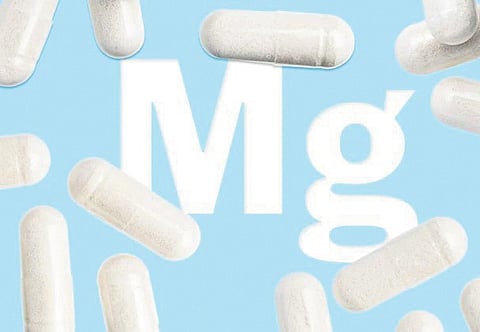Secret ingredient to happiness
Magnesium is magic. If you don’t take it seriously, your Friday night plans gradually are bound to go for a toss. That is because its deficiency can make you grumpy, give you moodswings and make you feel disinterested in anything you do.
Dr Santosh Kumar Aggarwal, Senior Consultant-Internal Medicine, Marengo Asia Hospitals Faridabad, says, “Magnesium is a powerful mineral that helps regulate the nervous system, control blood sugar levels and maintain healthy blood pressure.
If magnesium deficiency is left unnoticed, it can lead to several health problems, including high blood pressure, heart disease, diabetes, osteoporosis, migraines, muscle cramps, irregular heartbeat, insomnia, mood swings, loss of appetite, numbness or tingling in the legs or hands and tremors.”
There are many foods that have magnesium. Salmon, almonds, black beans, spinach, and dark chocolate are considered to contain good levels of magnesium.
Better Bone Health
Want stronger bones? Magnesium is the answer. It reduces the risk of fractures as we get older. It can also help lessen the risk of calcification within the arteries around the heart. Kavita Devgan, Delhi based Nutritionist and Author says, “The truth is that almost no system, organ, or process in the body can function without enough magnesium.
It is omnipresent and found everywhere from bone, muscles to the soft tissues, with a small bit circulating in the blood too. In fact a lesser known important fact is that magnesium deficiency is the most common deficiency worldwide (after vitamin D), yet most of us are not even aware of its importance.”
Immunity Booster
Magnesium acts as a co-factor for a variety of immune system reactions. Lack of magnesium can raise blood pressure and reduce insulin sensitivity too. And those who have asthma need to be particularly careful as magnesium helps relax the muscles of the bronchioles in the lungs. It also helps reduce inflammation in the body.
Are you deficient?
It is actually difficult to find out if one is deficient, as blood tests aren’t dependable. That's why its deficiency often gets missed, leaving us saddled with a less efficient body, missing magnesium, yet not announcing it. Another catch is that the symptoms of magnesium deficiency, which includes muscle cramps, facial and eye tics, poor sleep, hyperactivity, and chronic pain overlap with other deficiencies (vitamin B12 and vitamin D particularly).
Who is at risk?
People with certain health conditions including gastrointestinal diseases, type 2 diabetes, hormonal problems are more prone to develop magnesium deficiency. Pregnant women Looks like it’s time to pay some attention to magnesium.
‘Get enough magnesium’ plan for a day
● Spinach 250 gm (200 mg)
● Fish 250 gm (200 mg),
● 1 tbsp pumpkin seeds (60 mg),
● 2 cups yoghurt (100 mg),
● 10 almonds (30 mg)
● 1 banana (30 mg).
FUN FACT: About 60% of magnesium in the body is found in the skeleton, 39% in the muscles, and 1% is extracellular.

